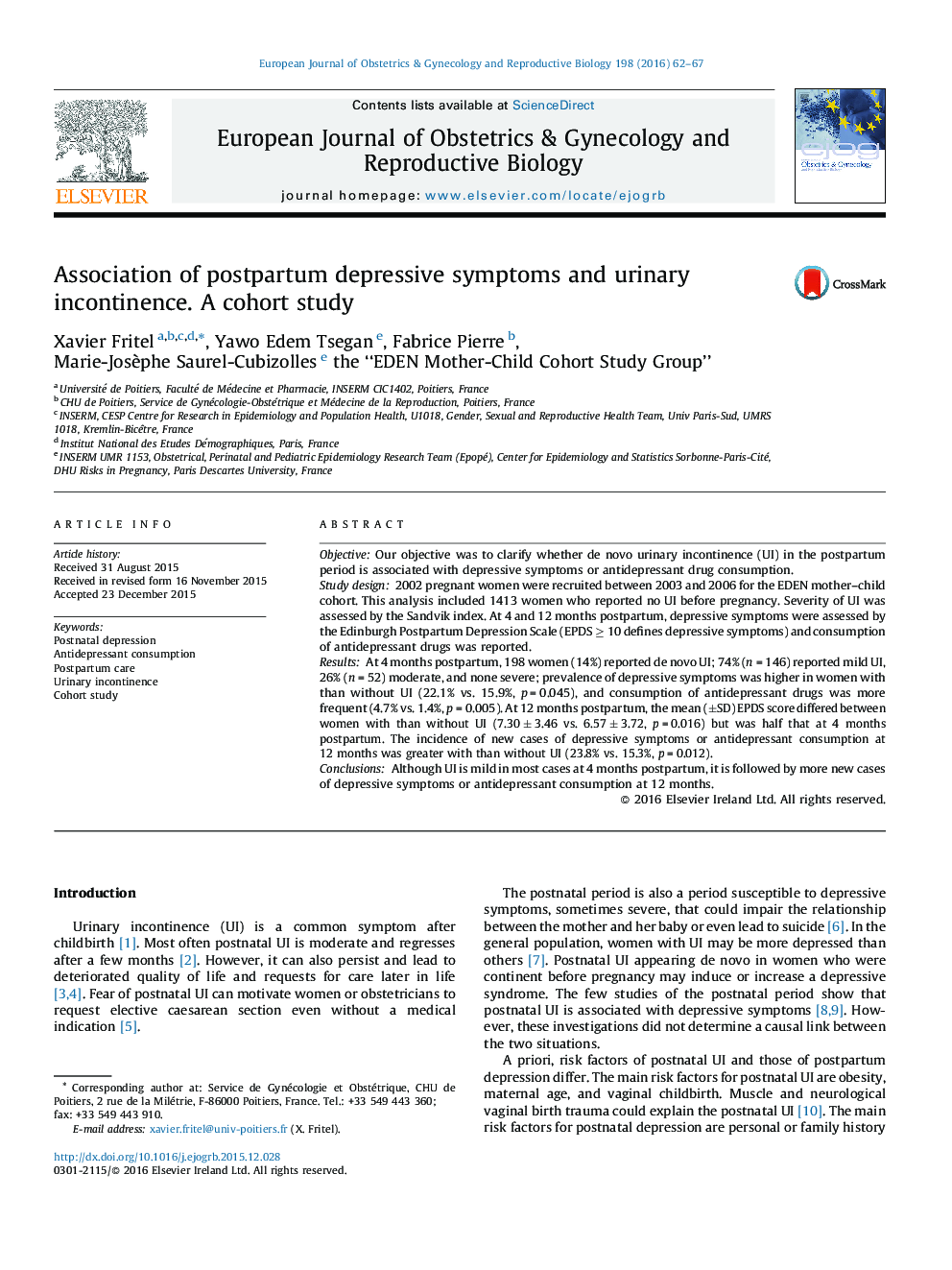| Article ID | Journal | Published Year | Pages | File Type |
|---|---|---|---|---|
| 3919383 | European Journal of Obstetrics & Gynecology and Reproductive Biology | 2016 | 6 Pages |
ObjectiveOur objective was to clarify whether de novo urinary incontinence (UI) in the postpartum period is associated with depressive symptoms or antidepressant drug consumption.Study design2002 pregnant women were recruited between 2003 and 2006 for the EDEN mother–child cohort. This analysis included 1413 women who reported no UI before pregnancy. Severity of UI was assessed by the Sandvik index. At 4 and 12 months postpartum, depressive symptoms were assessed by the Edinburgh Postpartum Depression Scale (EPDS ≥ 10 defines depressive symptoms) and consumption of antidepressant drugs was reported.ResultsAt 4 months postpartum, 198 women (14%) reported de novo UI; 74% (n = 146) reported mild UI, 26% (n = 52) moderate, and none severe; prevalence of depressive symptoms was higher in women with than without UI (22.1% vs. 15.9%, p = 0.045), and consumption of antidepressant drugs was more frequent (4.7% vs. 1.4%, p = 0.005). At 12 months postpartum, the mean (±SD) EPDS score differed between women with than without UI (7.30 ± 3.46 vs. 6.57 ± 3.72, p = 0.016) but was half that at 4 months postpartum. The incidence of new cases of depressive symptoms or antidepressant consumption at 12 months was greater with than without UI (23.8% vs. 15.3%, p = 0.012).ConclusionsAlthough UI is mild in most cases at 4 months postpartum, it is followed by more new cases of depressive symptoms or antidepressant consumption at 12 months.
